Acta Biomaterialia Silver Medal
The deadline for nominations for all Acta Materialia and Acta Biomateriala awards is February 1st each year. For the Acta Materialia Silver medal and the Acta Biomaterialia Silver medal, the nominees must be 45 years or younger on December 31 the previous year.
The Acta Biomaterialia Silver Medal intends to honor and recognize scientific contributions and leadership from academic, industry and public sector leaders in the midst of their careers. Many awards recognize outstanding young investigators or integrated contributions throughout a career. The Silver Medal is established to recognize significant research contributions that are recent and timely. Specifically, the awardee will have made significant contributions through one or more of the following means:
- a theoretical or experimental discovery of a new principle in biomaterials science,
- development or invention of a new process or product in the biomaterials engineering field, and/or
- distinguished leadership or service rendered to the profession of biomaterials science and engineering.
The nominee should be 45 years of age or under on the December 31 prior to the February 1 nomination deadline. Exceptions may be made for an interruption in career progression due, for example, to family or military service.
The Silver Medal Award consists of a silver medal, an inscribed certificate, and an honorarium of US $5000.
Candidates for this award may be proposed by any scientist/engineer/practitioner or any materials related society, previous Acta award recipients, Sponsoring or Cooperating Societies of Acta Materialia, Inc., and Editors of the Acta Materialia journals.
The nomination package should contain
- A statement by the nominator (two pages maximum) specifying the candidate’s suitability for the award with respect to:
- Specific and clearly defined recent research achievements that form the basis for the recognition
- The impact of these achievements in relationship to the relevant materials community**
- Indicators that the candidate is a recognized leader in his or her field
- A curriculum vitae that highlights recent research/translation activity, contributions, and leadership
- Letters of support from up to three distinguished scientists in the field
- Citation of not more than 30 words
**Please emphasize the nominee’s impact on their research field, rather than the metrics on their publications.
Nominations remain in effect for three years unless withdrawn or re-endorsed, with additional justification, for an additional two-year period. Current members of the Acta Materialia Board of Governors and of the Award Selection Committee are not eligible.
The Award Selection Committee is formed of five judges, themselves distinguished members of the materials community.
The Acta Biomaterialia Silver Medal is awarded each year, unless the judges feel no candidate is qualified. The presentation is made at a venue approved by the Acta Materialia Executive Committee. The Award will not be bestowed in absentia except in extraordinary circumstances.
Nominations should be submitted to the Executive Secretary (Prof. Carolyn Hansson, [email protected]), as a single file document preferably in PDF or Word format.
Acta Materialia, Inc.
Acta Materialia, Inc. (http://www.actamaterialia.org) is a non-profit organization representing 36 professional societies worldwide. It is dedicated to disseminating the knowledge of science and engineering of materials, primarily by publishing high quality journals covering all aspects of the multidisciplinary field of materials science and engineering, including biomaterials, nanomaterials, materials chemistry and physics. The corporation publishes four journals in collaboration with Elsevier: Acta Materialia, Scripta Materialia, Acta Biomaterialia, and Materialia.
Acta Biomaterialia Silver Medal Award Recipients
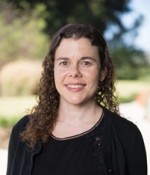
Karen Christman
The recipient of the 2025 Acta Biomaterialia Silver Medal Award is Dr. Karen L. Christman, Professor in the Shu Chien-Gene Lay Department of Bioengineering and holder of the Pierre Galletti Endowed Chair for Bioengineering Innovation at the University of California San Diego. She received her B.S. in Biomedical Engineering from Northwestern University in 2000 and her Ph.D. from the University of California San Francisco and Berkeley Joint Bioengineering Graduate Group in 2003, where she examined in situ approaches to myocardial tissue engineering. She was also a NIH postdoctoral fellow at the University of California, Los Angeles in the fields of polymer chemistry and nanotechnology. Dr. Christman joined the Department of Bioengineering in 2007 and is currently the Associate Dean for Faculty Affairs and Welfare in the Jacobs School of Engineering and the Co-Director of the Sanford Advanced Therapy Center at UC San Diego.
Prof. Christman’s group, which is housed in the Sanford Consortium for Regenerative Medicine, focuses on developing novel biomaterials for tissue engineering and regenerative medicine applications, and has a strong translational focus with the main goal of developing minimally invasive therapies for cardiovascular disease and women’s health. She was one of the founders of the field of injectable biomaterial scaffolds for treating the heart 20 years ago and continues to be a leader in this area. To date, her work has led to 3 INDs and the translation of the first pro-regenerative injectable biomaterial in myocardial infarction patients, which was also the first translation of a decellularized extracellular matrix hydrogel into patients. She is co-founder of two companies, Ventrix Bio and Karios Technologies, developing biomaterials to treat the heart and is holder of multiple patents related to biomaterials. More recently, she is also spearheading the use of tissue engineering strategies for women’s health applications, including treating pelvic floor disorders and vaginal atrophy.
Prof. Christman is a fellow of the American Heart Association, the American Institute for Medical and Biological Engineering, the Biomedical Engineering Society, and the Tissue Engineering and Regenerative Medicine International Society, and has received several awards including the NIH Director’s New Innovator and Transformative Research Awards, the Wallace H. Coulter Foundation Early Career Translational Research Award, the Tissue Engineering and Regenerative Medicine International Society’s Young Investigator and Senior Scientist Awards, the Society for Biomaterials Clemson Award for Applied Research, and the AIMBE Professional Impact Award for Diversity, Equity, and Inclusion. Dr. Christman is also a Senior Member of the National Academy of Inventors.
Professor Christman will receive the Acta Biomaterialia Silver Medal at the Society For Biomaterials Annual Meeting in Chicago, IL, April 9-12, 2025.

Natalie Artzi
The recipient of the 2024 Acta Biomaterialia Silver Medal is Dr. Natalie Artzi, Associate Professor of Medicine at Harvard Medical School. She graduated with a Ph.D. from Technion Israel Institute of Technology in 2004. Later she joined Prof. Elazer Edelman’s group at the Massachusetts Institute of Technology (MIT) as a postdoctoral researcher where she worked on studying tissue-biomaterial interactions. In 2015 she joined the Department of Medicine at the Brigham and Women’s Hospital (BWH), Harvard Medical School. She became a Principal Research Scientist at MIT in 2016, and an Associate Faculty Member at the Wyss Institute for Biologically-Inspired Engineering at Harvard University in 2022.
Prof. Artzi’s group is highly multidisciplinary, comprising of researchers and students with backgrounds in engineering, chemistry, biology, and medicine, who work at the cutting edge of bioengineering and develop biomaterials for diagnostic and therapeutic applications in cancer, autoimmune diseases, and bone regeneration. Prof. Artzi’s lab intricately balances basic science studies with the development of material-based technologies to address some of the major healthcare challenges.
Her lab has been instrumental in elucidating the contextual performance of materials and tissue-biomaterial interactions under specific environments and conditions. Such materials are then used alone or with drugs to expand their therapeutic window, enabling studying drug mechanism of action, identifying combination therapies, and the optimal drug dosing regimen. This in turn informs biomaterial design that maximizes therapeutic benefits. She has designed a wide range of biomaterials engineered to elicit specific responses from living tissues. Her research in nanotechnology has resulted in a library of particles that can deliver effectively small molecules, gene therapy, and proteins to target tissues and cells that are used to treat a range of diseases and to reprogram the immune system to achieve long-lasting responses. Her work on adhesive hydrogels has led to a startup company that develops the next-generation biomaterial solutions to prevent complications following internal surgeries. This platform is leveraged to deliver drugs locally and over time particularly when biological barriers to delivery prevent realizing therapeutic benefit, such as in the treatment of brain diseases. Her lab also pioneered the synthesis and development of a microneedle patch for transdermal drug delivery and biomarker sampling of skin interstitial fluid and has demonstrated wide applications in autoimmune skin-related diseases as well as in melanoma. Prof. Artzi has contributed a substantial body of work which influences research groups around the world and drives strong collaborations with academic laboratories as well as with industry. She serves as the scientific advisor to the BWH Stepping Strong Center for Trauma Innovation and on the Center’s Medical Executive Committee.
Prof. Artzi and her group have been recognized with multiple major awards including the inaugural Kabiller Rising Star Award in Nanotechnology and Nanomedicine (2021), the Massachusetts Life Science Center for women entrepreneurs (2021), Stepping Strong Innovator Award (2020), Controlled Release Society Young Investigator Award, Mid-Career Award from the Society for Biomaterials (2020), Bright Futures Prize (2019), and One Brave Idea Award (2019)..
Prof. Artzi is committed to training the next generation of scientists from early stages, providing high school and undergraduate students the opportunity to intern in her lab and work with graduate students and postdoctoral fellows under her guidance. It is rewarding to see these trainees go off to serve as faculty members in academic institutions and lead teams in industry.
Professor Artzi will receive the Acta Biomaterialia Silver Medal at the 2024 World Biomaterials Congress to be held in Daegu, South Korea, in May 2024.
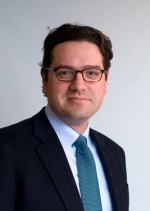
Giovanni Traverso
The recipient of the 2023 Acta Biomaterialia Silver Medal is Dr. Giovanni Traverso, an Assistant Professor in the Department of Mechanical Engineering at the Massachusetts Institute of Technology (MIT) and in the Division of Gastroenterology, Brigham and Women’s Hospital (BWH), Harvard Medical School. Dr. Traverso grew up in Peru, Canada and the United Kingdom. He received his BA from Trinity College, University of Cambridge, UK, and his PhD from the laboratory of Prof. Bert Vogelstein at Johns Hopkins University. He subsequently completed medical school training at the University of Cambridge, his internal medicine residency at BWH and his gastroenterology fellowship training at Massachusetts General Hospital, both at Harvard Medical School. Dr. Traverso’s early work focused on the development of innovative molecular tests for the early detection of colon cancer and was published in The New England Journal of Medicine and The Lancet. For his post-doctoral research, he worked in the laboratory of Prof. Robert Langer at MIT where he developed a series of technologies for drug delivery as well as physiological sensing via the gastrointestinal (GI) tract.
Dr. Traverso’s current research group is highly multi-disciplinary and engaged in research at the forefront of engineering sciences. Combining materials science, mechanical, electrical, and chemical engineering with pharmaceutical and clinical sciences, they are developing the next generation of ingestible drug delivery and sensing devices. One focus of Dr. Traverso’s research program is drug delivery systems that expand our capacity to efficiently deliver therapeutics through the gastrointestinal tract. His team has developed capsules for long-term residence in the stomach (multiple weeks to months) and capacity for ultra-long drug delivery. This work is enabling the development of weekly therapy for neuropsychiatric disease, a once-a-month oral contraceptive, and capsules for the eradication of malaria. The group has also designed capsules that achieve self-orientation and injection of biologic drugs into the mucosa, including insulin, monoclonal antibodies and mRNA. Furthermore, they have developed a family of materials that polymerize in the GI tract for drug delivery and nutrient modulation. Another area of focus for Dr. Traverso and his team is the development of novel ingestible electronic devices, which can sense a broad array of physiologic and pathophysiologic parameters. Many of Dr. Traverso’s inventions have been licensed or resulted in start-up companies that he co-founded, and some are now in active human clinical trials, all with the overarching goal of bringing his team’s inventions to help patients at the bedside.
Dr. Traverso’s work has been published in Science, Nature, Science Translational Medicine, Science Robotics, Science Advances, Nature Biotechnology, Nature Materials, Nature Communications, The New England Journal of Medicine, The Lancet, the Journal of the American Medical Association, and Cancer Research. He has been the recipient of the Grand Prize of the Collegiate Inventors Competition, a Research Fellowship from Trinity College (Cambridge, UK), and was named one of the most promising innovators under 35 by the MIT Tech Review’s TR 35. In 2020 he was recognized by Wired Magazine as one of the changemakers of tomorrow who is helping build a better world. In 2021 he was elected to the American Society for Clinical Investigation. This past year he was elected to the National Academy of Medicine Emerging Leaders in Health and Medicine Scholars program, and to the College of Fellows of the Controlled Release Society.
Professor Giovanni Traverso will receive the 2023 Acta Biomaterialia Silver Medal at the Society for Biomaterials meeting to be held in San Diego, CA, April 19-22, 2023.

Milica Radisic
The recipient of the 2022 Acta Biomaterialia Silver Medal is Professor Milica Radisic, Professor at the University of Toronto, Canada Research Chair in Functional Cardiovascular Tissue Engineering and a Senior Scientist at the Toronto General Research Institute.
She is also Director of the NSERC CREATE Training Program in Organ-on-a-Chip Engineering & Entrepreneurship as well as the Director of Ontario-Quebec Center for Organ-on-a-Chip Engineering. She obtained a B.Eng. in Chemical Engineering from McMaster University in 1999, and her Ph.D. from the Massachusetts Institute of Technology also in Chemical Engineering in 2004 under the supervision of Drs. Robert Langer and Gordana Vunjak-Novakovic. In 2005 she joined University of Toronto as an Assistant Professor. In 2014 she was promoted to the rank of Full Professor.
Professor Radisic’s work shaped a new field of organ-on-a-chip engineering. She addressed the field’s greatest challenges: maturation of stem cell-derived cardiac tissues and modelling of cardiac disease. Using multi-material processing techniques, she developed a heart-on-a-chip platform that eliminates the use of drug absorbing PDMS relying on fully inert plastic materials. She also enabled non-invasive continuous measurement of contraction force by microscopy via embedding of polymeric sensor wires into the platform that also act as anchor points for tissue growth. She developed techniques to create defined atrial, ventricular and atrioventricular tissues from human iPSC. Through microscale processing of elastomeric polymers, Dr. Radisic developed scaffolds that enable minimally invasive injections of tissues into the body and polymer-based branching microvasculature that allows direct anastomosis to the host blood vessels. She developed hydrogels based on a new peptide QHREDGS, a sequence from angiopoietin 1, to enable healing of hearts after myocardial infarction and regeneration of skin wounds without scarring.
The broad and significant impact of her pioneering contributions are demonstrated by her diverse awards, Queen Elizabeth II Diamond Jubilee Medal, Steacie Prize, Engineering Medal for Research & Development, YWCA Woman of Distinction Award, to name a few, and through the training of 114 researchers, who have themselves won over 160 awards.
Before the age of 40, Professor Radisic was recognized as a Fellow of the Royal Society of Canada and the Canadian Academy of Engineering, two of Canada’s premier academies. She is also a Fellow of the American Institute for Medical and a Biological Engineering and of the Tissue Engineering & Regenerative Medicine International Society. She was privileged to hold an NSERC E.W.R. Steacie Memorial Fellowship (2014–2016) and a Killam Research Fellowship (2020–2021), the most prestigious research fellowships in Canada. Her technology transfer activities provide undeniable evidence of the transformative impact of her discoveries, which have resulted in 40 pieces of IP and 2 companies (TARA and Quthero).
She is an Associate Editor for ACS Biomaterials Science & Engineering, Senior Consulting Editor for the Journal of Molecular and Cellular Cardiology and Reviewing Editor for eLife. After serving as a member of the Canadian Institutes of Health Research-Biomedical Engineering Panel since 2008, Dr. Radisic was appointed a Scientific Officer of this panel in 2020. She served as an international reviewer for the Israeli Council for Higher Education on Biotechnology (2012–2013) and Biomedical Engineering (2016–2017). She served on Boards of Directors in Canada (Ontario Society of Professional Engineers, McMaster Alumni Association, Canadian Biomaterials Society) and abroad (TERMIS) as well as on international Scientific Advisory Boards for university centres (TERC, Columbia University; ABM-CDT, University of Manchester). From 2017-2020 she served as an Associate Chair - Research for the Department of Chemical Engineering and Applied Chemistry (2017–2020), a position she left to hold the Killam Fellowship.
She will receive the award at the Society for Biomaterials meeting April 27-30, 2022 in Baltimore MD.
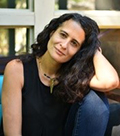
Tatiana Segura
The recipient of the 2021 Acta Biomaterialia Silver Medal is Prof. Tatiana Segura, Professor of Biomedical Engineering, Neurology and Dermatology at Duke University. Prof. Segura received her B.S. degree in Bioengineering from the University of California Berkeley and her doctorate in Chemical Engineering from Northwestern University. In 2006 she joined the Chemical and Biomolecular Engineering Department at the University of California Los Angeles as a tenure track Assistant Professor, a position she secured in 2004 before beginning her postdoctoral appointment. In 2012 she received tenure and was promoted to Associate Professor. In 2016 she was promoted to the title of Professor. She joined the Duke faculty in 2018.
Professor Segura’s laboratory is highly multidisciplinary, with researchers from backgrounds in basic and applied sciences and medicine, working on cutting edge approaches to promote endogenous repair with biomaterials. She balances the investigation of basic cell-material interactions with the design of translatable biomaterials strategies to promote endogenous repair. Prof. Segura’s work has been instrumental in our understanding of how biomaterial design impacts the repair of new blood vessels and axonal sprouting in the brain after stroke and how our immune system can be leveraged to promote the regeneration of skin wounds. Her research in porous scaffolds led to the co-discovery of the microporous annealed particle (MAP) scaffolds, which are injectable porous materials that promote rapid cellular infiltration. MAP scaffolds have been widely adopted in the biomaterials field and are being pursued for translation and FDA approval. Prof. Segura is a co-founder of Tempo Therapeutics, which seeks to commercialize MAP technology.
Professor Segura has received numerous awards and distinctions during her career, including a CAREER Award from the National Science Foundation, an Outstanding Young Investigator Award from the American Society of Gene and Cell Therapy and a National Scientist Development Grant from the American Heart Association. She was also named a Fellow of the American Institute for Medical and Biological Engineers in 2017. Her laboratory has been continuously funded with several grants from the National Institutes of Health (NIH) since 2008. She currently serves as a permanent member of the Gene and Drug Delivery Study section at NIH.
Professor Segura will receive the Acta Biomaterialia Silver Medal at the annual meeting of SFB, to be held in Chicago, USA in April 2021.
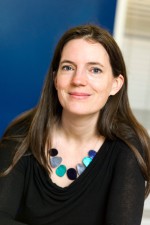
Molly M. Stevens
The recipient of the 2020 Acta Biomaterialia Silver Medal is Prof. Molly M. Stevens, Professor of Biomedical Materials and Regenerative Medicine at Imperial College London (UK). She graduated with a First Class Honours B.Pharm degree from Bath University in 1995 and a Ph.D. from the University of Nottingham in 2001. Later she joined Prof. Robert Langer’s group at the Massachusetts Institute of Technology as a postdoctoral researcher, where she worked on bone regeneration. In 2004 she joined Imperial College London as a lecturer and was promoted to Professor in 2008, making her one of the youngest professors in the history of the institution.
Prof. Stevens’ group is highly multidisciplinary, comprising of researchers and students with backgrounds in engineering, chemistry, physics, biology and medicine, who work at the cutting edge of bioengineering and develop bio-inspired materials for applications in regenerative medicine, tissue engineering and biosensing. She balances the investigation of fundamental science with the development of materials-based technologies to address some of the major healthcare challenges. Prof. Stevens’ work has been instrumental in elucidating the cell-material interface and the complex mechanisms of tissue formation. She has designed a wide range of biomaterials engineered to elicit specific responses from living tissues. Her research in nanotechnology has resulted in the co-development of the biodegradable nanoneedle platforms for drug delivery and cellular interfacing, and nanomaterial-based lateral flow assays for ultrasensitive disease detection, which have been tested in clinic and in the field. She has pioneered the use of material-characterisation techniques in life sciences with her group’s Single Particle Automated Raman Trapping Analysis, SPARTA™, and the quantitative Volumetric Raman Imaging, qVRI, techniques, amongst others. Prof. Stevens has generated a substantial body of work, which influences research groups around the world – she was named Clarivate Analytics Highly Cited Researcher 2018 for cross-field research. She has also filed numerous patents and has been involved in medical device development and approval.
Prof. Stevens is a Fellow of seven major UK Societies, including the Royal Academy of Engineering, for which she was elected under the age of 40. In 2019, she was elected Foreign Member of the National Academy of Engineering. She holds numerous international leadership positions, including Director of the UK Regenerative Medicine Platform hub for Smart/Acellular Materials, Deputy Director of the EPSRC Interdisciplinary Research Centre in Early-Warning Sensing Systems for Infectious Diseases, Member of the Board of Directors of the Materials Research Society and President of the RSC’s Division of Materials Chemistry. Prof. Stevens and her group have been recognised with multiple major awards, including the Rosalind Franklin Medal from the Institute of Physics (2018), the Marshall R. Urist Award from the Orthopaedics Research Society (2018), the Clemson Award for Basic Research from the Society of Biomaterials (2016), and the Clifford Paterson Lecture Award from the Royal Society (2012). Prof. Stevens’ programme has graduated over 50 doctorate students and she has mentored over60 postdoctoral researchers. Her alumni/alumnae have continued their research in prestigious institutions and many of them have secured competitive independent faculty positions.

Jason A. Burdick
The recipient of the third Acta Biomaterialia Silver Medal is Dr. Jason A. Burdick who is the Robert D. Bent Professor of Bioengineering at the University of Pennsylvania, Philadelphia, PA. Dr. Burdick will receive his Silver Medal at the Annual Meeting of the U.S. Society for Biomaterials to be held in Seattle, WA in April 2019.
Dr. Burdick received his B.S. in Chemical Engineering from the University of Wyoming in 1998 and his Ph.D. in Chemical Engineering from the University of Colorado in 2002. He held a postdoctoral position at the Massachusetts Institute of Technology and Massachusetts General Hospital from 2003-2005 before starting an independent faculty position at the University of Pennsylvania in 2005.
Dr. Burdick’s work focuses on the development and application of soft materials (e.g., hydrogels, elastomers) for biomedical applications. His laboratory synthesizes unique materials that exhibit tailored biochemical and biophysical properties, including those that are stimuli-responsive. These materials are utilized in a range of fundamental cellular studies, as well as in specific musculoskeletal and cardiovascular applications. Significant accomplishments of his work include:
- Development of materials with dynamic properties, for spatiotemporal control of mechanics to probe cellular mechanobiological responses.
- Introduction of developmental signals into 3D hydrogels to control the differentiation of encapsulated stem cells for cartilage repair.
- Fabrication of protease-responsive hydrogels for the “on-demand” delivery of therapeutics in diseases where protease levels change.
- Engineering of shear-thinning and self-healing hydrogels for the delivery of mechanical and biochemical signals to the heart muscle after myocardial infarction.
- Design of fibrous scaffolds for controlled porosity and the release of signals to encourage cell invasion and repair of connective tissues.
- Development of 3D printing processes for the printing of non-viscous hydrogel materials or for the printing of hydrogel inks within hydrogels.
Dr. Burdick directs the Polymeric Biomaterials Laboratory at the University of Pennsylvania, and has received numerous awards for his research, including the George H. Heilmeier Faculty Award for Excellence in Research, the Clemson Award for Basic Research through the Society for Biomaterials, the American Heart Association Established Investigator Award, and the Kalpana Chalwa Outstanding Recent Alumni Award through the University of Colorado and is a Fellow of the American Institute for Medical and Biological Engineering.
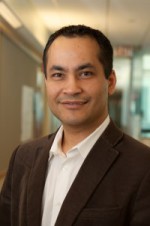
Ali Khademhosseini
Professor Ali Khademhosseini is the recipient of the 2018 Acta Biomaterialia Silver Medal. He is Professor of Medicine at Harvard Medical School and Director of the Biomaterials Innovation Research Center at Brigham and Women’s Hospital. He is also a Faculty member at the Harvard-MIT Division of Health Sciences and Technology as well as an Associate Faculty member at the Wyss Institute for Biologically Inspired Engineering.
Professor Khademhosseini is recognized as a leader in combining micro- and nano-engineering approaches with advanced biomaterials for regenerative medicine applications. In particular, his laboratory has pioneered numerous technologies and materials for controlling the architecture and function of engineered vascularized tissues. Dr. Khademhosseini’s interdisciplinary research is well cited and has been recognized by over 40 major national and international awards. He is a recipient of the Presidential Early Career Award for Scientists and Engineers, the highest honor given by the US government for early career investigators. In 2011, he received the Pioneers of Miniaturization Prize from the Royal Society of Chemistry (RSC) for his contribution to microscale tissue engineering and microfluidics. In 2016, he received the Sr. Scientist Award of Tissue Engineering and Regenerative Medicine Society -Americas Chapter (TERMIS-AM) and in 2017 he received the Clemson Award of the Society for Biomaterials. He is also a Fellow of the American Institute of Medical and Biological Engineering (AIMBE), the Biomedical Engineering Society (BMES), the Royal Society of Chemistry (RSC), the Biomaterials Sciences and Engineering (FBSE) and American Association for the Advancement of Science (AAAS). Currently he serves on the editorial board of numerous leading journals as well as an Associate Editor for ACS Nano (IF: 13.3) and a member of NIH BTSS study section. He received his Ph.D. in bioengineering from MIT (2005), and MASc (2001) and BASc (1999) degrees from University of Toronto both in chemical engineering.
Professor Khademhosseini will receive his Silver Medal at the 2018 Meeting of the Society for Biomaterials in Atlanta, GA.

Thomas J. Webster
EDUCATION
Doctor of Philosophy in Biomedical Engineering
Rensselaer Polytechnic Institute, Troy, NY, 1995 to 2000.
Dissertation: “Design, synthesis, and evaluation of nanophase ceramics for
orthopaedic/dental applications.”
Completed: Dec. 2000.
Advisor: Dr. Rena Bizios, Department of Biomedical Engineering.
Co-Advisor: Dr. Richard W. Siegel, Department of Materials Science and
Engineering.
Master of Science in Biomedical Engineering
Rensselaer Polytechnic Institute, Troy, NY, 1997.
Bachelor of Science in Chemical Engineering
University of Pittsburgh, Pittsburgh, PA, 1995.
RESEARCH, TEACHING, AND COMMERCIALIZATION EXPERIENCE
2012-present Department Chair and Art W. Zafiropoulo Professor of Chemical
Engineering, Northeastern University, Boston, MA
2006-2012 Associate Professor, School of Engineering, Brown University,
Providence, RI
2006-2012 Associate Professor, Department of Orthopaedics, Brown University,
Providence, RI (by courtesy)
2006-present Scientific Founder and Chair of the Scientific Advisory Board, Nanovis,
LLC, West Lafayette, IN
2007-present Adjunct Faculty, California Institute of Nanotechnology
San Jose, CA
2007, 2009-2012 Director, Biomedical Engineering Graduate Program
(Engineering), Brown University, Providence, RI
2008-2010 Director, Indo-U.S. Center for Biomaterials for Health Care
2009-present Scientific Founder, Audax, Inc., Concord, MA
2010-present Scientific Founder and Chair of the Scientific Advisory Board, Axena,
Providence, RI
2011-present Scientific Founder, DentalRegen, Inc., Concord, MA
2011-present Scientific Founder, Perios, Inc., Concord, MA
2015-present Scientific Founder, Vexti, Wilmington, DE
2011-present Visiting Professor, VIT, India
2005-2006 Associate Professor, Weldon School of Biomedical Engineering, Purdue
University, West Lafayette, IN
2005-2006 Associate Professor, School of Materials Engineering, Purdue University
West Lafayette, IN (by courtesy)
2000-2005 Assistant Professor, Weldon School of Biomedical Engineering, Purdue
University, West Lafayette, IN
2004-2005 Assistant Professor, School of Materials Engineering, Purdue University
West Lafayette, IN (by courtesy)